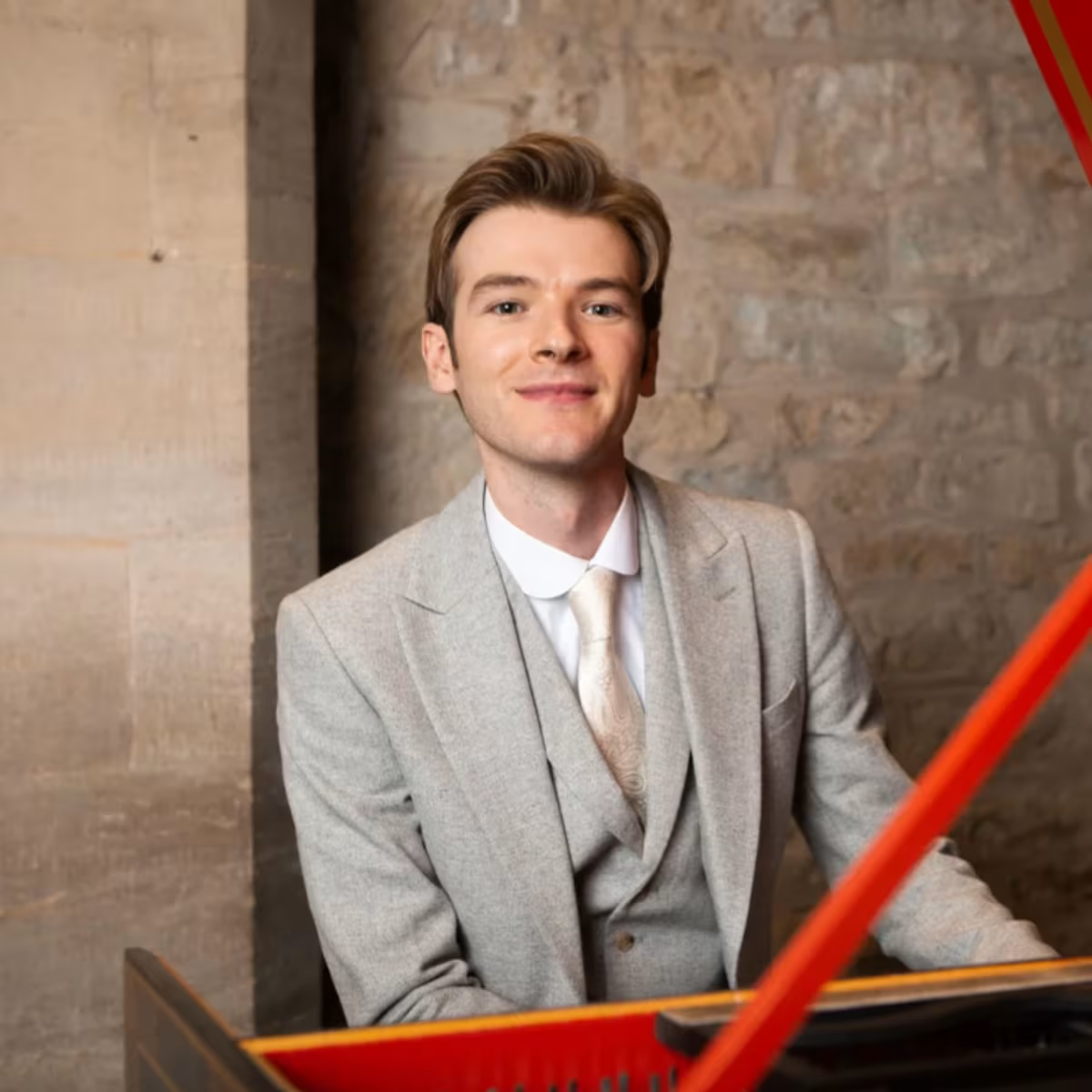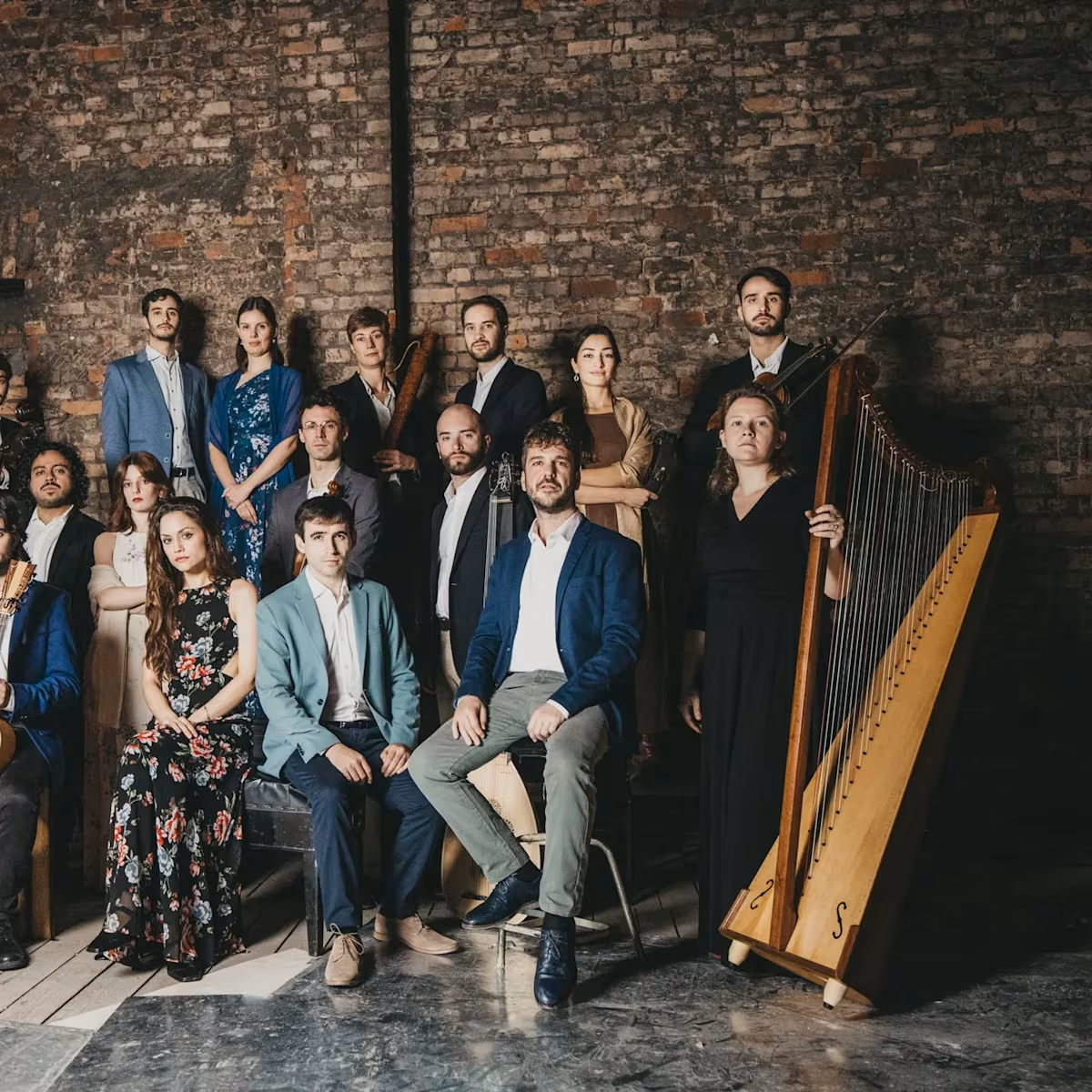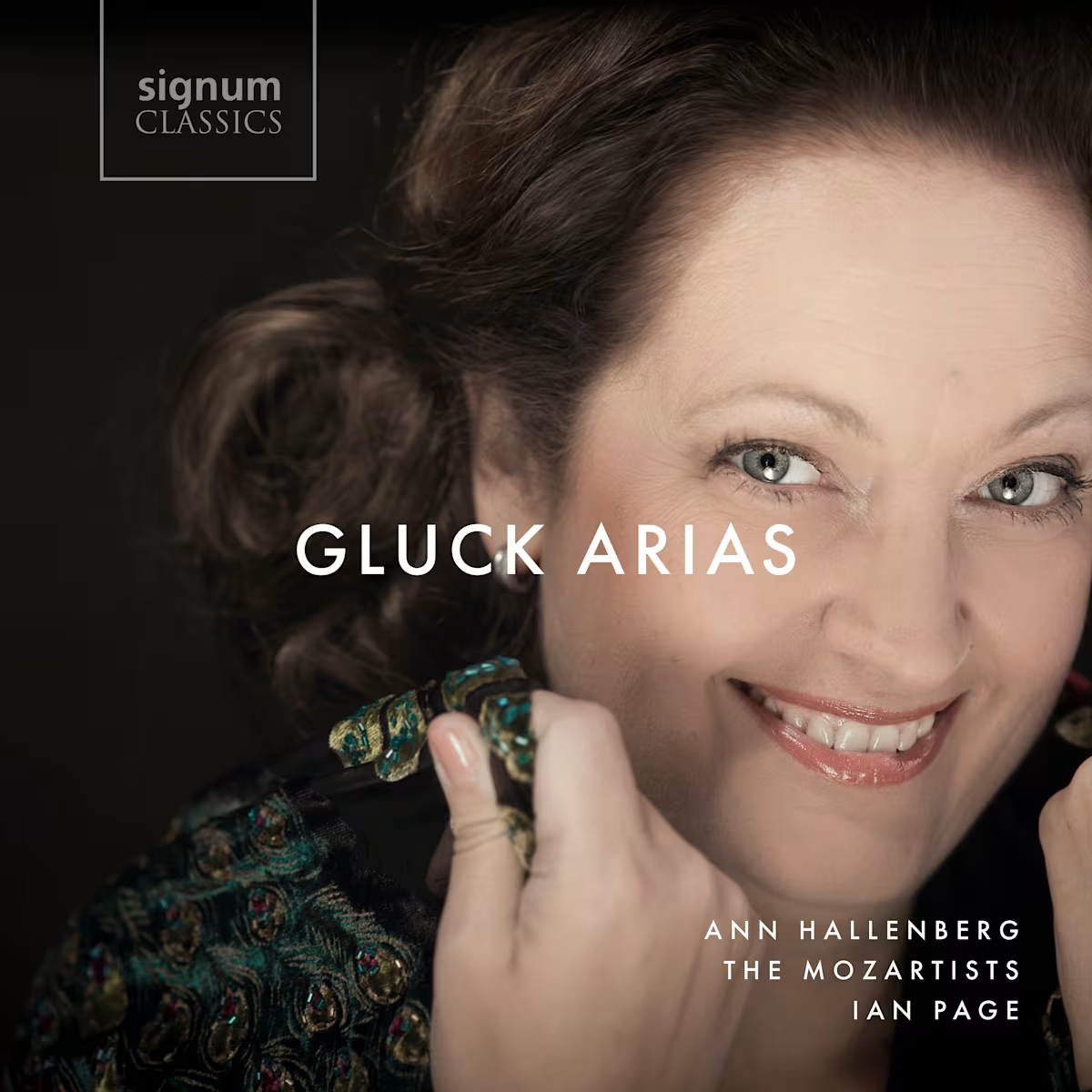Feature
Bill Barclay: Concert Theatre Works
and the secret 16th century
Share this

FIRST PUBLISHED 05 JAN 2025
Bill Barclay is one of those delightfully inspiring people whom it is hard to define, at least in terms of a job description that would fit neatly onto a drop-down menu for an online form. He would have to tick artistic director, musician, theatre person, researcher, producer, animateur and possibly provocateur. In other words, an all-round artistic explorer. He spent nine years in London and was Director of Music at Shakespeare's Globe from 2012–19, where, with both indoor and outdoor theatres to work with, he relished the research that let him draw on early music while making it relevant to contemporary production. “The Globe needs leadership and broad-based taste,” he says, feeling that many recent stage directors have subverted the original intentions of Sam Wanamaker in reconstructing the building in such authentic detail.
That is in the past though. These days Bill is artistic director of the Music Before 1800 series in New York City and he spends most of his time there, while still having the flexibility of his dual UK-US nationality to let him operate on this side of the Atlantic. As a producer, his main vehicle is his Concert Theatre Works company which, “has a mission to tell stories, to give concert audiences something to hang on to. Young people don't have the natural gear to allow them to sit still and just listen. Their experience of music is always as an accompaniment to another activity, often visual. The act of concentrated listening is neurologically different.” Bill says he sees his task as, “making music visible. For early music projects I hire and deploy the musicians in order to make the Renaissance feel new.”
The main project recently has been Secret Byrd, developed with the British vocal group, The Gesualdo Six, and viol consort, Fretwork. The performance aims at recreating the sense of clandestine resistance those singing Byrd's Catholic Latin settings of the Mass must have felt at the end of the 16th century. Elizabeth I's secret service regarded Catholic worship, even in the privacy of the chapels or around the fireplaces of noble homes, as openly hostile acts. It suggested sympathy with Spain, ruled by Elizabeth's former brother-in-law, Philip II. William Byrd himself and his music were tolerated because of his artistry, but the music's religious use in defiance of the state Protestant church by the nobility and their households was not. It could lead to serious interrogation and accusations - sometimes fatal - of treason.

Bill sees resonances of those suspicious times in the repressive actions of our contemporary autocratic regimes around the world. “We have been trying to recreate a moment that does not repeat exactly but rhymes with themes in our own times, like intolerance, autocracy and fascism. In order to make people think about those themes, we need to make them focus on the specific. Apparently, every generation has to touch the hot stove.”
He sees music as a quotation of its times. “Secret Byrd has been on a world tour and it almost always sells out. Its popularity stems from the experience of the event. People become complicit in the story.” Not surprisingly, there are several countries that The Gesualdo Six have not been asked to visit, which rather proves the point. “The Gesualdo Six are so intrepid and they are still young. I'm glad I met them when I did. I'm coming up with a new show with them, exploring the story of Gesualdo himself with the voices and dancers. We want to tackle Gesualdo's most difficult music. We're using the ancient art of tableaux vivant, working with Will Tuckett as the choreographer. It is not going to be an immersive piece, but it will look at Carlo Gesualdo's clandestine rise and fall and tell his story in a compelling way.” The composer was Prince of Venosa, a small town about halfway between Bari and Naples. Its original dedication to Venus, goddess of love, has proper irony, since his most infamous act was the revenge murder of his wife and her lover in bed. His sense of guilt is said to have been behind his increasing use of tortured harmony in his late music. The story, Bill feels, illustrates “composers grappling with demons.” Death of Gesualdo is scheduled to open in London in 2026, co-commissioned by St Martin-in-the-Fields, the National Centre for Early Music in York, and Music Before 1800 in NYC, and Bill is looking for supporters to help bring it to life.
The Secret Byrd Trailer featuring The Guesualdo Six and Fretwork
Concert Theatre Works has 20 pieces on tour, split between the US and UK. The theatrical nature of the performances “is not about dumbing down.” Bill Barclay sees it as a way of helping audiences who have not been brought up in the tradition of classical music connect with the music. “Acoustic classical music does something different from music that is amplified. If we are going to get it to survive, we have to bring this generation in, and that means new ways of presentation. Classical music needs to exploit its own stories.”
One of the other productions, premiered at the Aldeburgh Festival and touring in 2025, is Letters to a Young Poet, combining String Quartets by Ravel and Debussy with a text based on the recently discovered full correspondence between Rainer Maria Rilke and fellow poet Frank Kappus. Rilke and Ravel (whose 150th anniversaries fall in 2025) worked only a few streets away from each other in Paris while in their twenties. The Parker and Brodsky Quartets share the duties of playing the music alongside a pair of actors. Alongside the Academy of Ancient Music's intimate, theatrical reimagining of Bach's The Art of Fugue, Concert Theatre Works will also be touring a reconstruction of Bach's long-lost St. Mark Passion, using four singers and strings, along with an actor Barclay knows from his time at The Globe, Joseph Marcell. In the UK, the ensemble for the tour will be Edinburgh-based Dunedin Consort.
The inaugural UK tour of Secret Byrd was supported by a grant from Continuo Foundation. To support or collaborate on future productions, contact Bill Barclay via ConcertTheatreWorks.com.
The world premiere of Bill Barclay's production of Bach's The Art of Fugue with the Academy of Ancient Music, directed by Laurence Cummings, took place at West Road Concert Hall, Cambridge on 14 May 2025 and at Milton Court, London on 15 May 2025. This project was supported by a grant from Continuo Foundation.
Author: Simon Mundy
Share this
Keep reading

Harpsichord Masterclass Series with Nathaniel Mander
Take your early keyboard playing to the next level with this 16-part online masterclass series led by international harpsichordist, Nathaniel Mander.

Cantoría | ‘A la fiesta, zagales’: Spanish Baroque at Wigmore Hall
Cantoría leads listeners into a vibrant Spanish festive world filled with the joyful energy of Baroque villancicos, carols, jácaras and dances.

Gluck Arias | Ann Hallenberg with The Mozartists & Ian Page
Ian Page and The Mozartists’ latest recording for Signum Classics features a programme of Gluck arias sung by celebrated Swedish mezzo-soprano Ann Hallenberg.





